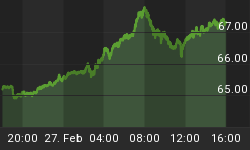The European Central Bank (ECB) kept its main refinancing rate unchanged at 1%, but announced that it will phase out its six-month and one-year refinancing facilities and move to an index-based interest rate rather than a fixed or auction based rate for future refinancing operations.
The first move, the phasing out of the long-term refinancing facilities (the last one-year operation takes place this month; the last six-month operation in March) is a very healthy step in normalizing central bank policy. It's also a rather hawkish step as it forces financial institutions to re-finance long-term obligations in the market where rates are higher. Just as in recent speeches, ECB President Trichet urged banks to take advantage of both market conditions and any government support programs to raise capital to improve their balance sheets. In our assessments, the phasing out of the longer-term refinancing facilities put substance behind this urging as it forces European banks - that have generally lagged U.S. banks in raising capital - to clean up their balance sheets.
It seems that Trichet is discussing the euro's strength in more detail with each press conference he holds. Our interpretation of the press conference is that the ECB has initiated its exit strategy in earnest, but is rather concerned it could lead to a substantially stronger euro, especially versus the U.S. dollar. As a result, Trichet bent over backwards in communicating that the ECB is not signaling a rate hike. As to the timing of future rate hikes, Trichet would only commit to say the ECB will raise rates when appropriate.
Some members of the ECB governing council clearly wanted to go further as the ECB changes the terms of the refinancing terms from a fixed rate to one pegged to an index. Except that this peg may be meaningless unless the ECB actually raises rates. In our view, this shows that the ECB may be a reluctant hawk: they want to and will tighten, but are hoping that their hawkishness won't be reflected in the exchange rate.
With these steps, the ECB is light years ahead of the U.S. Federal Reserve (Fed) when it comes to an unwinding of the extra-ordinary support programs; the Fed continues to engage in fiscal policy with its credit easing while piling up securities on its balance sheet that cannot be easily "phased out", but may remain with them for years. The Fed has phased out many emergency programs, but continues to build up its mortgage-backed security (MBS) purchases; by allocating money to a specific sector of the economy, the Fed engages in fiscal policy. It is no coincidence that the ECB portrays an aura of normalcy, whereas Bernanke is on Capitol Hill yet again being attacked about the Fed's policies.















